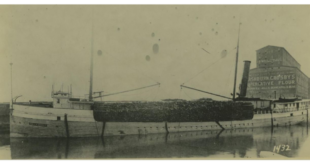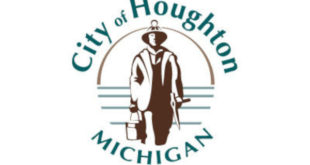(HANCOCK) Western Upper Peninsula Health Department’s Reminders for Safe Holiday Meals
Food safety is probably not the first thing you think about when planning a holiday dinner. We have so many other things on our to do list, and we are looking forward to a memorable holiday with our family and friends. But to keep your gathering from being memorable in the wrong way, it’s important to take steps to protect your guests from food-borne illnesses.
While the U.S. food supply is one of the safest in the world, some 76 million people get sick from food-borne illness every year, according to the CDC. Food safety can be a special challenge during the holidays. The holiday menu may include more dishes than there is room for in the refrigerator or oven making it difficult to keep hot food hot and cold food cold. And although many hands make lighter work in the kitchen, not all of your guests helping to prepare the holiday meal may be knowledgeable about food safety.
“It takes planning, organization, and attention to food safety to prepare a safe holiday meal. Many of the traditional holiday dishes need to be kept at proper temperatures during preparation, cooking, cooling, and reheating so bacteria won’t have a chance to grow,” says Lynne Madison, WUPHD Environmental Health Division Director.
Further, most guest lists include people who are especially vulnerable to food borne illness — older people, young children, pregnant women, or anyone with a compromised immune system.
To make sure your holiday dinner is not only delicious but as safe as possible, follow these food safety tips:
Plan ahead. Consider your refrigerator, freezer and oven space, and how you’ll manage to keep hot foods at 135 degrees or higher and cold foods at 41 degrees or below. If you need to use coolers, make sure you have plenty of clean ice and check it frequently to be sure the ice hasn’t melted.
Properly defrost your turkey, or buy a fresh one. If you choose a frozen turkey, allocate 24 hours per 5 pounds to defrost it in the refrigerator; don’t defrost the turkey on the kitchen counter.
Cook to proper temperature — and use a thermometer. There is simply no other way to determine that food has been cooked enough to kill bacteria. Turkeys, stuffing, side dishes, and all leftovers should be cooked to at least 165 degrees and kept above 135 degrees during serving to be sure that any potential bacteria is destroyed.
Rapidly cool food cooked in advance of the holiday. Use ice, shallow pans, and a thermometer, to be sure pre-cooked foods rapidly cool from 135 degrees to 70 degrees in two hours, and from 70 degrees to 41 degrees in 4 hours. Rapidly re-heat (2 hours) pre-cooked food to 165 degrees for the holiday meal. If your menu includes food offerings from friends and relatives, advise your guests to bring their dish on ice in a cooler, or piping hot in an insulated container, and reheat the food to 165 degrees Fahrenheit when they arrive.
Refrigerate leftovers within two hours of preparation. Leaving food out too long is one of the biggest holiday food safety problems. Food that sits outs for more than two hours in the danger zone — above 41 degrees and below 135 degrees is at risk for bacterial growth. Store leftovers in shallow containers and make sure the refrigerator is not over-packed so that leftovers cool rapidly.
Wash hands thoroughly and often — before, during, and after food preparation. Washing your hands with hot water and soap, up to your wrists and between your fingers, for approximately 20 seconds will remove bacteria that cause foodborne illness. The holiday season is also cold and flu season. Guests with illness symptoms – coughing, runny nose, fever, or recent vomiting or diarrhea should not assist with food preparation.
Wash all fresh produce to minimize potential bacterial contamination.
Thoroughly wash kitchen counters, sponges, cutting boards, and knives, especially after preparing raw poultry, meat, or fish.
Our special holiday meals are such an important part of a family gathering. Make food safety one of your gifts to family members this holiday season. For more information about safe food handling and preventing foodborne illness visit the health department’s website at www.wuphd.org.
Western U.P. Health Department provides public health services to residents in Houghton, Keweenaw, Baraga, Ontonagon, and Gogebic counties from its offices in Hancock, L’Anse, Ontonagon and Bessemer.
 Keweenaw Report Your Source for Local News and Sports
Keweenaw Report Your Source for Local News and Sports





